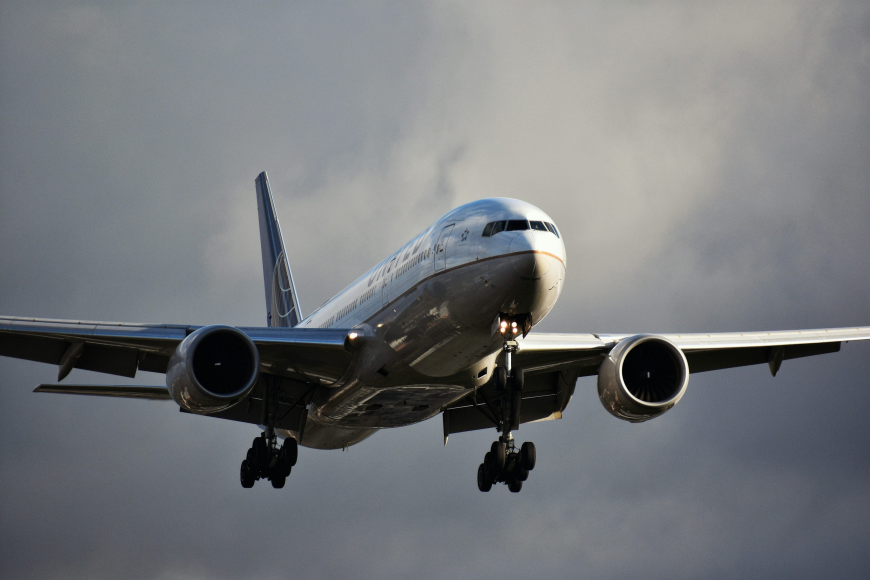Top 10 Reasons Why Airlines Cancel Flights
Flight cancellations are an unfortunate reality for travelers, causing frustration, delays, and disruptions to travel plans.

Flight cancellations are an unfortunate reality for travelers, causing frustration, delays, and disruptions to travel plans. While airlines strive to maintain smooth operations, several factors can lead to canceled flights. Understanding the top 10 reasons why airlines cancel flights can help passengers prepare better and minimize inconvenience.
1. Severe Weather Conditions
One of the most frequent reasons why airlines cancel flights is adverse weather. Storms, hurricanes, heavy snowfall, fog, and thunderstorms can make flying unsafe. Airlines prioritize passenger safety, so when extreme weather is forecasted, flights may be preemptively canceled to avoid risks such as:
-
Low visibility (fog, heavy rain)
-
Strong winds (crosswinds, microbursts)
-
Icy runways (snowstorms, freezing rain)
Even if weather conditions improve, flight cancellations can have a cascading effect, disrupting schedules for hours or even days.
2. Mechanical Issues & Aircraft Maintenance
Airlines follow strict safety regulations, and if an aircraft has a mechanical problem, it must be grounded until repairs are completed. Common reasons for flight cancellations due to maintenance include:
-
Engine malfunctions
-
Hydraulic system failures
-
Avionics or navigation system issues
While airlines keep spare planes as backups, sometimes no replacement is available, forcing cancellations.
3. Air Traffic Control (ATC) Restrictions
Air traffic congestion or ATC strikes can lead to flight cancellations. When airspace becomes too crowded or understaffed, authorities may impose delays or ground stops, causing airlines to cancel flights to manage the backlog.
-
ATC strikes (common in Europe)
-
Military airspace closures
-
System outages (e.g., FAA computer failures)
These disruptions often affect multiple flights across different airlines.
4. Crew Scheduling Problems
Airlines must comply with strict crew rest regulations to prevent pilot fatigue. If a flight crew exceeds legal working hours or faces unexpected delays, the airline may not have backup staff available, leading to cancellations.
Common crew-related reasons for flight cancellations include:
-
Pilot or flight attendant shortages
-
Missed connections due to prior delays
-
Regulatory duty-time limits
Labor strikes by airline staff can also cause widespread cancellations.
5. Airport Operational Issues
Technical failures at airports—such as runway closures, power outages, or baggage system breakdowns—can force airlines to cancel flights. Other airport-related reasons for flight cancellations include:
-
Security breaches
-
Fuel shortages
-
Ground handling staff strikes
For example, a single closed runway at a major hub can disrupt dozens of flights.
6. Low Passenger Demand (Economical Cancellations)
Airlines sometimes cancel flights due to low bookings, especially on less popular routes. Consolidating passengers onto fewer flights helps reduce operational costs.
-
Seasonal route adjustments
-
Underperforming flights
-
Last-minute schedule optimizations
While inconvenient for passengers, this practice helps airlines maintain profitability.
7. Political Unrest or Security Threats
Civil unrest, terrorism threats, or sudden government travel advisories can lead to flight cancellations. Airlines may suspend operations to high-risk destinations to ensure passenger safety.
Examples include:
-
War zones or conflict areas
-
Health emergencies (e.g., COVID-19 travel bans)
-
Political instability (coups, protests)
Such cancellations are often abrupt and may leave travelers stranded.
8. Fuel Shortages & Rising Costs
Airlines operate on tight budgets, and unexpected fuel price spikes or shortages can make certain flights financially unviable. In extreme cases, airlines may cancel flights to conserve fuel or avoid losses.
-
Fuel supply chain disruptions
-
Sudden oil price hikes
-
Airport fuel shortages
This issue is more common in remote airports with limited fuel availability.
9. IT System Failures & Cyberattacks
Modern airlines rely heavily on IT systems for reservations, flight planning, and communications. A major system crash or cyberattack can cripple operations, leading to mass cancellations.
Notable incidents include:
-
British Airways IT meltdown (2017)
-
Southwest Airlines scheduling failure (2022)
-
Airline website crashes due to hacking
Such disruptions can take days to resolve, affecting thousands of passengers.
10. Airline Bankruptcy or Financial Troubles
If an airline faces financial difficulties or declares bankruptcy, it may abruptly cancel flights. Passengers are often left scrambling for refunds or alternative travel arrangements.
Recent examples:
-
Flybe collapse (2020, 2023)
-
WOW Air shutdown (2019)
-
Regional airline bankruptcies
Travelers should monitor airline financial health before booking.
How to Minimize the Impact of Flight Cancellations
While passengers can’t prevent cancellations, they can take steps to reduce inconvenience:
Book with reputable airlines (better contingency plans)
Choose early morning flights (less likely to be delayed)
Monitor weather & travel alerts
Purchase travel insurance (covers cancellations)
Know your passenger rights (EU261, DOT regulations)
Final Thoughts
Flight cancellations happen for various reasons, from weather disruptions to operational failures. By understanding the top 10 reasons why airlines cancel flights, travelers can better prepare for potential disruptions and make informed decisions.
If your flight is canceled, always check with the airline for rebooking options, compensation eligibility, and alternative routes. Staying informed and flexible can help mitigate the stress of unexpected travel changes.

